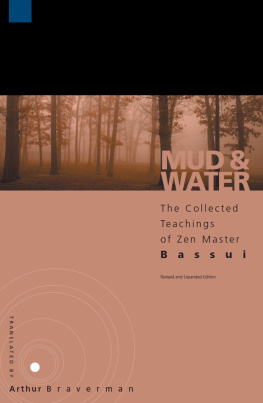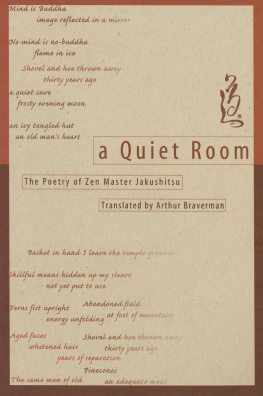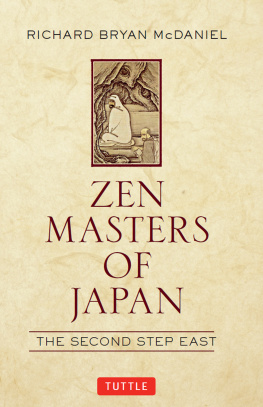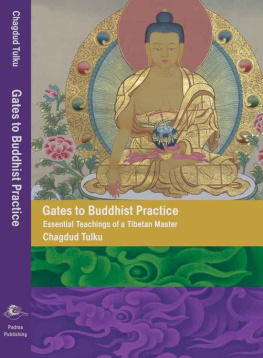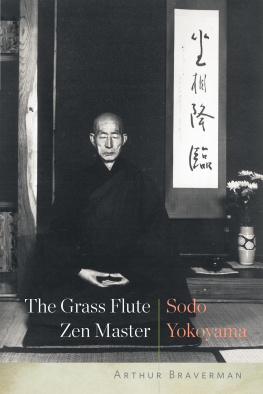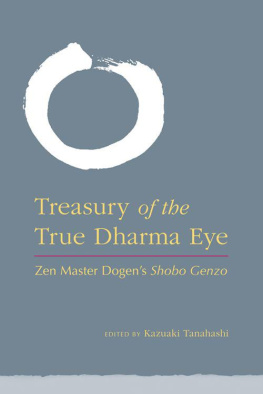Mud and Water

Wisdom Publications
199 Elm Street
Somerville, MA 02144 USA
www.wisdompubs.org
2002 Arthur Braverman
All rights reserved.
No part of this book may be reproduced in any form or by any means, electronic or mechanical, including photography, recording, or by any information storage and retrieval system or technologies now known or later developed, without permission in writing from the publisher.
Library of Congress Cataloging-in-Publication Data
Bassui Tokush, 13271387
[Enzan wadei gassuishu. English]
Mud and water : the collected teachings of Zen Master Bassui / Translated by Arthur Braverman.
p. cm.
Includes index.
ISBN 0-86171-320-6 (alk. paper)
ISBN 978-0-86171-723-1 (ebook)
1. Spiritual lifeZen BuddhismEarly works to 1800. 2. Zen BuddhismDoctrinesEarly works to 1800. I. Braverman, Arthur, 1942 II. Title.
BQ9288.B3713 2002
294.3'444dc21 2002007164
ISBN 0-86171-320-6
First Wisdom Edition
06 05 04 03 02
5 4 3 2 1
Cover by Richard Snizik
Interior by Stephanie Doyle
Cover photograph, Woods, by Gary Irving (Photodisc).
Wisdom Publications books are printed on acid-free paper and meet the guidelines for the permanence and durability of the Production Guidelines for Book Longevity of the Council on Library Resources.
Printed in Canada
To the memory of Sophie Braverman and Joe Rubin
Table of Contents
T HANKS TO Ralph Edsell, Anne Forer, Peter Haskel, Doug Honeyman, Surya Dass Miller, Richard Kortum, and Hanalore Rosset for reading sections of the translation and offering many useful suggestions; to Professor Kiyoshi Hoshi for the use of his photographs relating to Bassuis life and for making his comprehensive research on Bassui available to me; to Ichiro Shirato Sensei for teaching me how to read Japanese; to Hiroko Sanada Braverman for answering countless questions regarding difficult passages in the text; and to our daughter, Nao, for her ability to understand from age two that when Daddy is at the typewriter, it is time to find another playmate.
I T HAS BEEN over ten years since the publication of the translation of Bassuis Enzanwadeigassui-sh. When Josh Bartok from Wisdom Publications asked me if I had any books no longer in print, I immediately thought of a new and expanded addition of the teachings of Bassui. The record of Bassuis teaching was my first published translation of Japanese classical Zen texts and still my most cherished. The Enzanwadeigassui-sh published under the English title of Mud and Water is the most comprehensive text of Bassuis talks. Still, there is more to this unique Zen figure. With the addition of some of his letters to monks, nuns, and laypersons and his talk on questioning your mind, we get a more complete picture of Bassuis teachings. The extensive research on Bassui by the late Professor Kiyoshi Hoshi has helped me greatly in revising this translation. Finally I would like to thank Diana and Richard St. Ruth, publishers of Buddhism Now for their generous support of my work in general and for letting me use the Bassui letters Id previously published in Buddhism Now.
Arthur Braverman
Ojai, California
1/21/02
T HE ENZANWADEIGASSUI-SH (A Collection of Mud and Water SHU from Enzan, hereafter referred to as the Wadegassui) is a series of talks between the fourteenth-century Zen master Bassui Tokush and his disciplesmonks, nuns, and laypeople. Since it records the questions of his disciples and Bassuis responses to them, these are not Dharma talks in the formal sense, but rather the informal teaching of Bassui as he responds to the questions of his disciples in an attempt to clear up their doubts. Sometimes his responses are short, direct, and spontaneous. At other times he seems to use the question as a springboard to crucial aspects of the teaching. Through these exchanges we see not only the teaching method of a mature Zen master, but also the religious beliefs and superstitions held by fourteenth-century Japanese at a time when Japan was afflicted by civil war. Though the disciples backgrounds were diverse and their perspectives quite varied, Bassui always managed to bring the students back to what he considered the essence of Zen: seeing into ones own nature. Bassuis ability to connect these diverse questions to this central theme in Zen and to make the complex Buddhist doctrines comprehensible to monks and laypersons is what makes him unique as a Zen master.
Bassui uses illustrative examples when questioned about popular sutras of the time. When queried about sections of the Lotus Sutra, the Amida Sutra, and the Sutra of the Bodhisattva Jiz, he shows how they all express the one teaching: Seeing into ones own nature is Buddhahood. Indeed, he reduces the Six Perfections of the Prajpramit Sutra to this one truth. Moreover, his verbal acrobatics are always coupled with a true passion, which would impress upon his disciples the urgent need to look into their own nature. And it is this ability to express his understanding with such clarity and passion that drew monks and laypeople to him in droves.
When asked how one goes about seeing into his own nature, Bassui would ask the student to inquire into the one who is asking the questionthe one who is speaking right now. This approach did not originate with Bassui. But here again it is Bassuis way of focusing on this one question to the exclusion of all else that gives his Zen its unique flavor. And since Bassui himself had been tormented by this question throughout his life as a seeker, it is perhaps not surprising that it was to become the central theme of his teaching. To understand the foundation from which this teaching grew, we should first look into Bassuis life and practice up to the time he became the mature teacher we see in the Wadeigassui.
BASSUIS LIFE
Bassui Tokush was born in Nakamura, a district in the province of Sagami, in what is now Kanagawa prefecture, in 1327, on the sixth day of the tenth month. His family name was Fujiwara, but there seems to be no record of the given names of either his father or his mother. He was born during the reign of the Emperor Godaigo (13181339), a period when the Hj, a military family that virtually ruled over Japan for more than a hundred years, was losing its control over the country. At this time Japan was on the verge of a civil war that would last more than fifty years.
Bassuis mother was said to have had a dream that she would give birth to a demon child. Unable to shake off the fear of this omen, she abandoned the newborn Bassui in a nearby field. A family servant He then inquired more deeply into the meaning of soul. After some years, this investigation led him to another question: Who is the one who sees, hears, and understands? For long periods of time he sat in meditation, forgetting his own body, until one day he realized there was nothing one could grasp to call the soul. With this new view of the emptiness of all things, Bassui no longer felt the burden of body and mind, and his doubts about the Buddhadharma (the truth; the teaching of the Buddha), for the time being, were cleared up.
Next page
